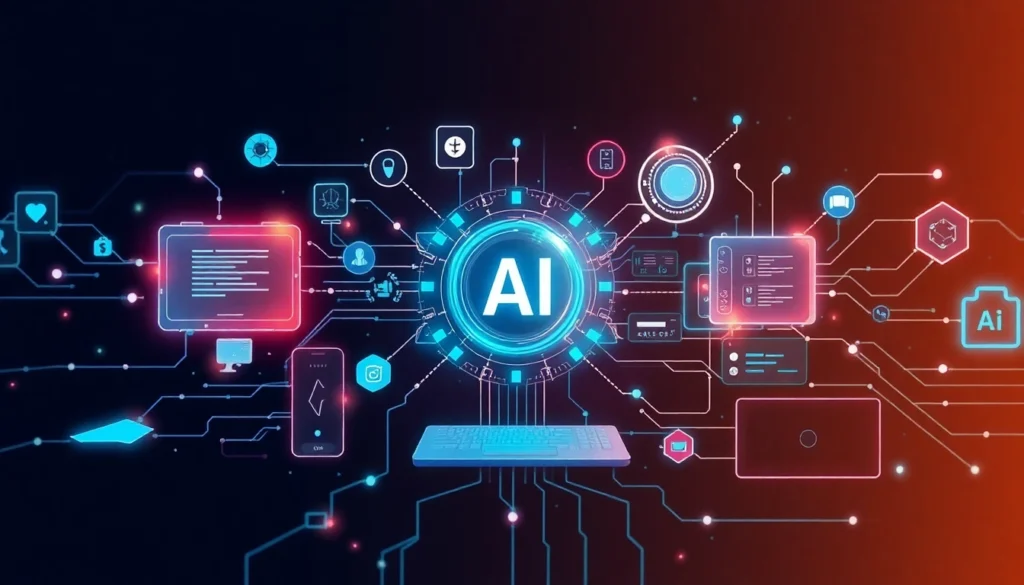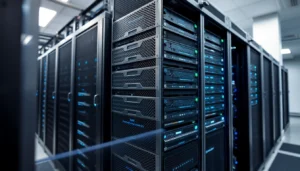Technology Explained: Definitions, Types, and Future Trends You Must Know
Discover the full scope of technology—its definitions, types, innovations, and future trends. Stay informed and explore how technology shapes our world today. Read more!

In today’s rapidly evolving world, technology is the driving force behind societal progress, economic growth, and daily life transformations. From the dawn of human innovation to cutting-edge advancements like artificial intelligence and quantum computing, understanding what technology is and how it impacts us is essential. This comprehensive guide explores the depths of technological evolution, its diverse types, societal impacts, and what the future holds in this ever-changing landscape.
1. What Is Technology? Definition and Basic Concepts
1.1. Definition of Technology
Technology refers to the application of scientific knowledge for practical purposes. It encompasses tools, machines, systems, and processes that improve human life by solving problems, enhancing efficiency, or creating new possibilities. Essentially, technology transforms ideas into tangible solutions that impact every aspect of society.
1.2. Historical Evolution of Technology
The history of technology dates back to the earliest use of stone tools over 2 million years ago. From the invention of fire and wheel to the Industrial Revolution, technological innovations have continually reshaped civilizations. The 20th and 21st centuries have seen exponential growth with the advent of electronics, digital computing, and the internet, marking a shift towards a digitally interconnected world.
1.3. Key Components of Modern Technology
- Hardware: Physical devices like computers, smartphones, sensors, and machinery.
- Software: Programs and applications that run on hardware, enabling functionalities.
- Networks: Connectivity infrastructure such as the internet, 5G, and data centers.
- Data: Information processed and analyzed to derive insights and inform decisions.
2. Types of Technology and Their Applications
2.1. Information and Communication Technology (ICT)
ICT encompasses all digital communications, including the internet, mobile devices, and cloud computing. It enables instant communication, remote work, e-commerce, and digital education. The rise of 5G networks and IoT (Internet of Things) devices accelerates this sector’s growth, impacting industries from healthcare to entertainment.
2.2. Biotechnology and Medical Technology
This sector focuses on applying biological systems and organisms for health improvements. Innovations include gene editing technologies like CRISPR, personalized medicine, telemedicine, and advanced diagnostics. These advancements are revolutionizing healthcare, making treatments more efficient and accessible.
2.3. Manufacturing and Industrial Technology
Modern manufacturing leverages robotics, automation, and AI-driven processes to increase productivity and precision. Technologies such as 3D printing, smart factories, and industrial IoT are transforming traditional industries, reducing waste and enhancing supply chain efficiency.
3. The Impact of Technology on Society
3.1. Economic and Business Transformation
Technological innovation fuels economic growth by creating new markets and job opportunities. The tech industry trends include digital transformation initiatives, which enable businesses to operate more efficiently and reach global audiences. Companies adopting emerging technologies often see increased competitiveness and innovation.
3.2. Societal and Cultural Changes
Technology influences societal norms, communication, and cultural practices. Social media platforms connect people worldwide, shaping public opinion and activism. Meanwhile, digital education and online learning democratize knowledge access, empowering marginalized communities.
3.3. Ethical and Privacy Concerns
With rapid technological advancements come ethical dilemmas—such as data privacy, surveillance, and AI bias. As information technology becomes more integrated into daily life, addressing these issues through regulations and ethical frameworks is crucial to foster responsible innovation.
4. Cutting-Edge Innovations and Future of Technology
4.1. Artificial Intelligence and Machine Learning
AI and machine learning are transforming industries by enabling machines to learn, adapt, and perform complex tasks. The future of AI includes autonomous vehicles, intelligent personal assistants, and predictive analytics, promising increased efficiency but raising questions about employment and ethical use.
4.2. Quantum Computing
Quantum computing leverages quantum mechanics to perform calculations far beyond classical computers. It holds potential for breakthroughs in cryptography, drug discovery, and complex simulations, shaping the future of information technology.
4.3. Emerging Technologies and Trends
- Blockchain: Secures transactions and enables decentralized applications.
- Extended Reality (XR): Combines virtual, augmented, and mixed reality for immersive experiences.
- Edge Computing: Processes data closer to the source for faster response times.
- Technological Advancements in Renewable Energy: Innovative solutions for sustainable power generation.
5. Frequently Asked Questions About Technology
Q1. How does technology influence daily life?
Technology impacts daily life through smartphones, online banking, smart home devices, and entertainment platforms. It enhances convenience, connectivity, and access to information, making routines more efficient and interconnected.
Q2. What are the most promising future tech developments?
Emerging technologies like AI, quantum computing, and biotech hold promise for significant advancements. They could revolutionize healthcare, redefine industries, and solve complex global problems such as climate change and resource scarcity.
Q3. How can I stay updated on technological advancements?
Regularly follow reputable tech news sources, subscribe to industry newsletters, attend conferences, and participate in online courses or webinars. Engaging with tech communities and reading research papers also helps stay informed about the latest trends and innovations.
Conclusion
Technology continues to evolve at an unprecedented pace, shaping the fabric of modern society and promising a future filled with innovation. From technological advancements like AI and quantum computing to the ongoing digital transformation across industries, understanding these developments is vital. Whether you’re a professional, a student, or simply a curious individual, staying informed about emerging technologies and their ethical implications will empower you to navigate and contribute to this dynamic landscape. Embrace the future of tech—it’s shaping a smarter, more connected world.





